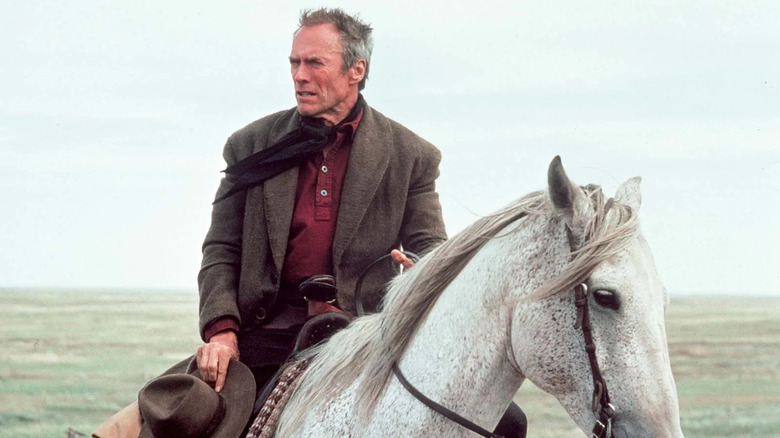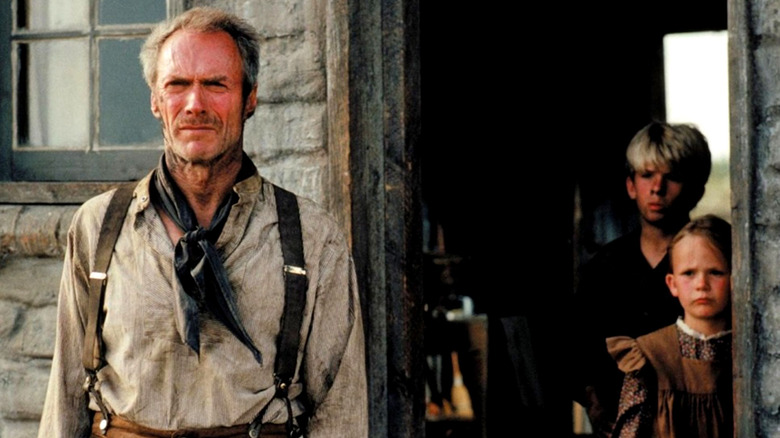Clint Eastwood's Unforgiven Character Originally Called For A Lot More Prosthetics Work
For his whole career, Clint Eastwood was the embodiment of the movie cowboy. Whether it be the literal, traditional Western cowboy like his "Man with No Name" character from "The Good, the Bad, and the Ugly" or the modern cowboy, the anti-hero police officer Harry Callahan in the "Dirty Harry" series, Eastwood was the guy. Even cowboys are mortal, though, and Eastwood has to face his own mortality like any of us. The only difference is he did so by making a movie.
"Unforgiven" follows the story of William Munny, a former killer-for-hire who takes one last job. The film's grand, yet simple, Western setting, along with themes of reverting to one's old ways and betrayal by one's physical body, struck a chord with all sorts of audiences, as the film earned rave reviews and Oscars both for Best Picture and Best Director.
Eastwood's path to making "Unforgiven" wasn't always a certain one, as he almost threw away the script sight unseen based on the recommendation of a friend. But when it finally came across his desk, Eastwood immediately connected with the story, and he ended up extremely loyal to the written script.
But even with his intense loyalty to the script, Eastwood did make some changes in the final product. According to an interview with David Webb Peoples, the film's screenwriter, Eastwood's character was originally meant to have only three fingers on one hand.
Not an extravagant production
When asked in the Yahoo! Entertainment interview about the change in Munny's amount of fingers, Peoples chalked it up to a choice by Eastwood himself. "Yeah, his nickname was 'Three Fingered Jack.' I never took it out of the script, so I think that Clint probably just didn't want to do that," said the writer. Peoples guesses that most of Eastwood's changes were for practical reasons, including the choice not to have Munny have three fingers on one hand.
"I mean that's a lot of work and it's also time consuming! I liked it because it wasn't usual, and I think people in those days were a lot more beat-up than we are now. They lived very physical lives, so it was about trying to get a feeling for the time. But acting with a three-fingered prosthetic would have been a workout, and Clint achieved the feeling of the time without it."
Munny's fingers weren't the only thing changed for simplicity's sake.
"If you look at that '84 script, you'll also see there's a lot of snow in it, and I think he knew that snow would have made the movie a more extravagant production than he wanted to do."
Screenwriters are often very used to having their original scripts majorly altered by the time the movie hits theaters, so it makes sense that Peoples did not take the change very personally, especially considering Eastwood's overall loyalty to the script. The film is fantastic, and it won lots of awards, so I think Eastwood's decisions to keep the production simple were the right ones. It's not a flashy story, after all.

